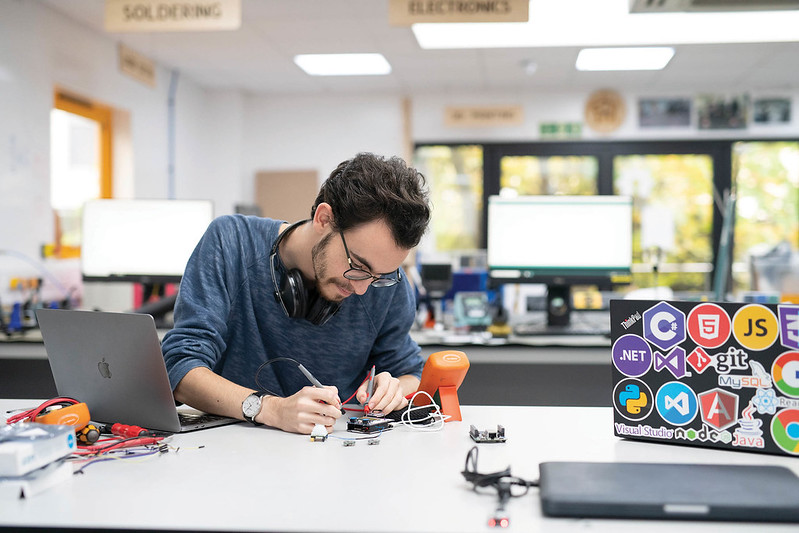We are pleased to announce that the University has been awarded £1.148 million from the latest Office for Students (OfS) Capital Funding Competition in recognition of our commitment to science, technology, engineering and mathematics (STEM).
The funding will support the expansion of our natural sciences (Biosciences, Physics & Astronomy, Chemistry & Forensic Science, Sport & Exercise Sciences), Engineering and Computing portfolios across research and teaching.
We will use the investment to improve our capacity for hybrid learning, create new high specification computing teaching laboratories, increase capacity for high performance computing use in undergraduate teaching, install a centralised render farm for use in our Forensic Sciences progammes and invest in new natural science laboratory technology and facilities.
Professor Claire Peppiatt-Wildman, Director of the Division of Natural Sciences, explained that the investment will be ‘transformative for our students and the wider community’. She said: ‘The equipment and infrastructure that will result from this investment will give our students the experience and confidence to succeed in the STEM sector. It will also help us deliver the highest quality of experiential learning in skills required for the future, and play a pivotal role in creating a pipeline of excellent graduates with relevant experience of using state of the art facilities – all of which will benefit our region and beyond.’
More than 150 Higher education institutions submitted bids for this year’s award, with 100 receiving investments. The University’s success in this process demonstrates its dedication to continued growth in the sciences.
Nolan Smith, Director of Resources and Finance at the OfS, said: ‘Good facilities, modern buildings and access to the right equipment are important elements to students having a positive experience of higher education. This was a very competitive funding round, with generally high quality applications across the board. The projects we are funding provide good value for money for the taxpayer, and will make a demonstrable and positive difference to students now and into the future. The projects will help with strategically important subjects which are expensive to deliver, as well as offering a boost to local and regional economies.’

